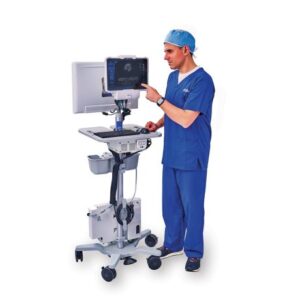
"Illustration depicting CAR-T therapy for ovarian cancer."
Anixa Biosciences, Inc. (“Anixa” or the “Company”) (NASDAQ: ANIX), a clinical-stage biotechnology company focused on the treatment and prevention of cancer, today announced that treatment has commenced for the fourth patient in the ongoing Phase 1 clinical trial of its novel chimeric antigen receptor T-cell (CAR-T) therapy for ovarian cancer. The study is being conducted through a research partnership with Moffitt Cancer Center.
The first-in-human trial is enrolling patients with recurrent/resistant ovarian cancer who have progressed on at least two prior therapies. The CAR T was safe and tolerable in the first three patients treated. The fourth patient, the first patient enrolled in the second cohort, received triple the dose of CAR-T cells compared with the dose of the first cohort. Anixa’s Follicle Stimulating Hormone Receptor (FSHR)-mediated CAR-T technology, also known as chimeric endocrine receptor T-cell (CER-T), differs from traditional CAR-T therapy by targeting FSHR, which research indicates is expressed on ovarian cells, as well as in the vasculature of tumors.
Dr. Amit Kumar, Chairman and CEO of Anixa, commented, “With no safety issues observed in the first cohort of patients, we have successfully advanced to the next cohort to evaluate a 3x higher dose. As the trial progresses, we seek to demonstrate efficacy of our cell therapy in solid tumors—a difficult challenge for traditional CAR-T therapies that have been shown to be efficacious in hematological tumors and lymphoma.”
Dr. Robert Wenham, the Principal Investigator of the trial and the Chair of Gynecologic Oncology at Moffitt, stated, “First, we have the advantage of a target that is much more specific to our tumor tissue, which should minimize any on-target, off-tumor effect. Additionally, we are administering the engineered T-cells directly into the peritoneum (IP), which is the location of most of the ovarian tumor lesions. We hope that this delivery approach will enable direct trafficking of the CER-T-cells to the tumor sites and minimize adverse events such as cytokine release syndrome (CRS)”.







